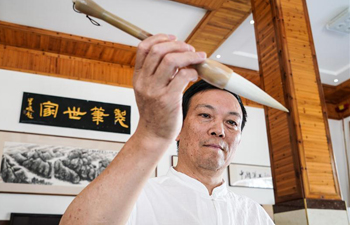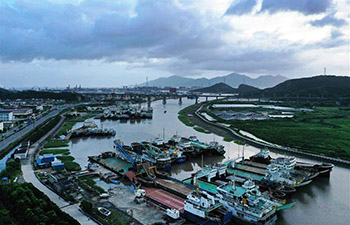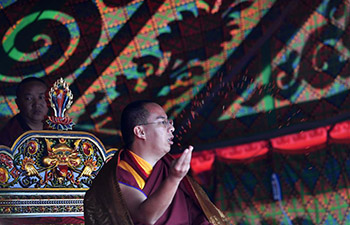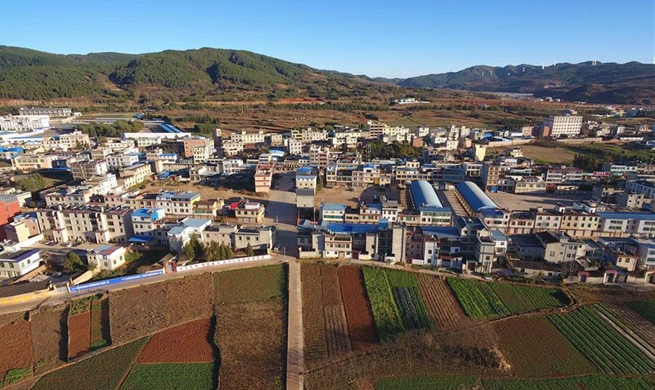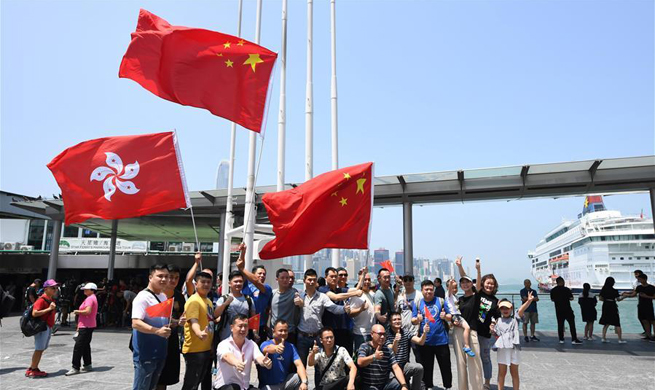SAN FRANCISCO, Aug. 8 (Xinhua) -- Cultural exchanges, particularly people-to-people exchanges, play a significant role in moving forward China-U.S. relations, although the two countries are experiencing tensions in their ties, a U.S. professor said in an interview with Xinhua on Thursday.
"Cultural exchanges are sort of way that we can try to move forward at the people-to-people level," said Thomas Gold, a professor from the Department of Sociology of the University of California, Berkeley (UC Berkeley).
"I think that that's really critical to both countries, no matter what goes on at the top, and we have to continue," he told Xinhua during an event where Chinese Consul General in San Francisco Wang Donghua held a reception for U.S. graduates who have studied in Chinese universities and colleges.
The professor, who has just returned to the United States after a month-long visit to the Chinese city of Shanghai, was among the first group of U.S. government-funded exchange students who studied in China in 1979.
He described himself as a "pioneer" that witnessed tremendous and ground-breaking changes in China over the past 40 years, saying China has developed very quickly in infrastructural construction, including highways, railroads and airports.
China's achievements in hardware are unbelievable compared with four decades ago, he said.
"But I think even more important is the software, it's the way the Chinese young people especially are very much integrated into global society," Gold said.
Hailing the Chinese young generation as "very sophisticated and very inquisitive," Gold said, "they understand many different aspects of global society, which certainly 40 years ago they did not understand at all."
The professor, who worked as the executive director of intra-university program for Chinese language studies at UC Berkeley from 2006-2016, also expressed worries about many Americans who do not have deep knowledge of China, which he in part blamed for the reasons behind the current tensions in China-U.S. relations.
"We have problems with people who do not really have a deep understanding of China from the inside, (and) have not participated in cultural exchanges," he said.
Gold voiced deep worries that the United States and China are in a more awkward situation now than in 40 years ago, when the world's two major countries were able to develop their relations smoothly and stably.
"The China-U.S. relations in 1979 gave people an optimistic expectation," he said, hoping the current bilateral ties between China and the United States could be reversed to a more optimistic track, at least no worse than the 1979 level.
Cultural exchanges can move the two countries steadily forward, he stressed.
"I've been involved in people-to-people relationships for almost 50 years, and we need to build our people-to-people relations and have to continue to go forward," said the professor, who once worked as an interpreter for former U.S. Secretary of State Henry Kissinger, the man who strategically reshaped the China-U.S. relations more than four decades ago.
